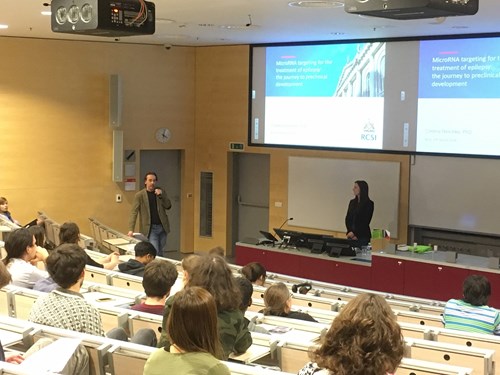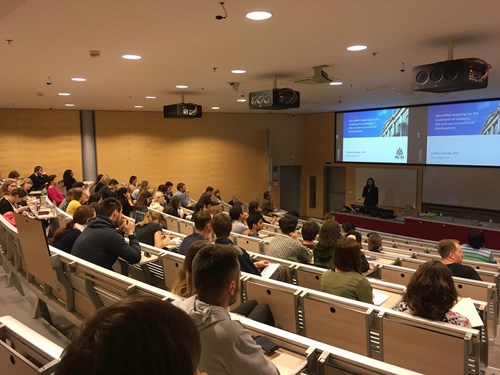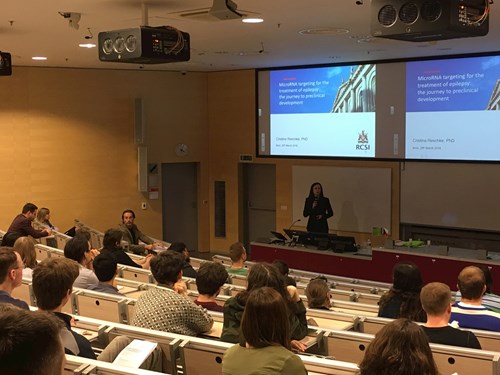About the lecture
Epilepsy is a common, serious neurological disease characterized by recurrent seizures. Current anti-epileptic drugs (AEDs) act on a limited set of neuronal targets, are ineffective in a third of patients with epilepsy, and do not show disease-modifying properties.
Evidence has emerged that a class of small, non-coding RNA called microRNA (miRNA) is important in the pathogenesis and potential treatment of epilepsy. MicroRNA-134 is involved in controlling neuronal microstructure and brain excitability and previous studies showed that intracerebroventricular injections of locked nucleic acid (LNA), cholesterol-tagged antagomirs targeting microRNA-134 (Ant-134) reduced evoked and spontaneous seizures in mouse models of status epilepticus.
These protective effects were validated in another rodent specie, and in non-chemical and non-status epilepticus epilepsy models, benefiting translation. Moreover, timed systemic delivery of Ant-134 produced potent and long-lasting disease-modifying effects. These findings suggest efficacious antagomir therapy can be achieved using a clinically-relevant route and provide a rationale for pursuing pre-clinical development of Ant-134 for epilepsy.


